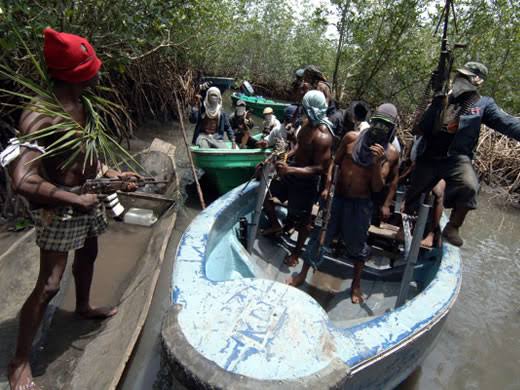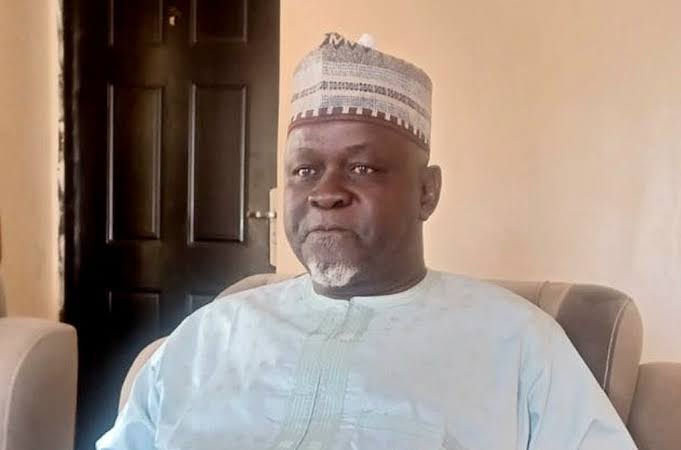- Country witnessed ugliest face of corruption under Buhari – Kukah
A former Chairman of the Independent National Electoral Commission, Professor Attahiru Jega has said that Nigerians have not been able to enjoy the dividends of democracy since the advent of the present democratic rule because of bad governance.
Jega, while delivering a paper at the retreat organized by the National Institute for Legislative and Democratic Studies in Ilorin, Kwara State on Monday said that Nigeria has been experiencing bad leadership since the return of the civilian administration.
While lamenting that though Nigeria parades leaders but the country was in short supply of good leaders.
He said, “Nigeria has been on a trajectory of liberal democratic development continuously for 23 years, since 1999 when the military returned to the barracks.
“While every four years we have routinely elected representatives into the legislative and executive arms of government, there is consensus that these elements of liberal democratic development have not yet translated into substantive socioeconomic development that satisfies the needs and aspirations of the overwhelming majority of citizens.
“For the past 23 years, the country has been under democratic rule, but the so-called dividends of democracy have not yet been desirable for the majority of Nigerian Citizens. Unfortunately, there has been bad leadership, not that there are no good leaders in the country but they are in short supply while the democratic institutions are also weak.
“In general, leadership at all tiers of the Nigerian federation has not been good; it has been essential bad and undemocratic; characterized by bad, rather than good, democratic governance
“Many national organizations and institutions have been afflicted/affected by this tendency towards bad governance.
“The basic things we require in good governance are good leaders that can be transformational and transitional if we are to achieve good dividends of democracy, “Jega said.
The Professor of Political Science, Bayero University, Kano whose paper was titled: “Importance of Personal Leadership Competencies in an Organization in Transition”, said that key qualities of leadership in a democratic context stated that the country needs a leader with good representation, responsible and responsiveness, integrity and honesty adding that such a leader must have cognate experience and competence who understands democratic governance and must be a leader who can inspire and motivate the followership.
“We also need institutions that can inspire good governance”, the former INEC chairman said.
In his speech, the Director General of the National Institute for Legislative and Democratic Studies, Professor Abubakar Sulaiman said that Nigeria cannot afford to fail its citizenry in its over two decades of democratic evolution.
He said the pessimism expressed by Western apologists about the survival of democracy in the country should be perceived as a motivation to consolidate on the gains recorded and not a setback.
Sulaiman, a former Minister of Planning said with 23 years of uninterrupted democracy, the country has proved its critics wrong, most of whom are of the Western world.
He noted that democracy is not akin to the Western world but customized and domiciled according to people’s environment, pointing out that Nigeria has its own brand of democratic system.
Sulaiman admitted the attendant shortcomings of the nation’s democracy but insisted that they are not sufficient reasons to vilify its democracy.
He said, “Divergent opinions and views are allowed in any clime. And for the so-called apologists of democracy worldwide who believe that Nigeria cannot survive with its democracy, we don’t need to look outside, we don’t need to entertain fear because we can’t afford to fail our people.
“We have been a democracy for almost 24 years now. When we first started, people never thought we would get to where we are now. For some people to have this kind of phobia, and pessimism and say Nigeria cannot survive, be it in the area of security, or political system, it is for us as a people to put that one behind us and see that perhaps as something that could ginger us to move forward. That we have done in the last 24 years.
“We are not perfect as a democracy, we have our shortcomings and inadequacies here and there, but those things are not substantial enough for anybody to condemn the country as a democracy. I think we have done so much and I hope with the new government and with our democratic credentials, we stand a chance to do better, going forward.
“I’m not disturbed by the pessimism of the apologists of the Western world. Democracy is not akin to the Western world. It is customized and domiciled in your own environment. So, we have our own brand of democracy. To the best of my knowledge, I think we have been able to do it. We have done so much and we can still do so much”, the NILDS boss said.
On the retreat, Sulaiman said it was convened for the management staff of the institute to key into the agenda of President Bola Ahmed Tinubu and the National Assembly under the leadership of Senator Godswill Akpabio.
He maintained that the country has started experiencing changes in the economy with the present administration and harped on the need to deepen the partnership between the executive and legislative organs.
Sulaiman said, “At the legislative level, the 10th National Assembly has started work in earnest under the able and uncommon leadership of Senator Godswill Akpabio. In consonance with our statutory mandate, NILDS will continue to provide research and capacity-building services to the National Assembly as well as other democratic institutions.
“In the executive, the country is witnessing momentous changes under the leadership of President Bola Ahmed Tinubu, particularly in the economic domain. For these changes to be impactful and achieve the desired outcomes, the strategic partnership between the executive and legislative arms of government must be deepened.
“We at NILDS must therefore understand the nature of the fundamental changes and be in a good position to provide the necessary support to the National Assembly and other democratic institutions in line with our statutory role”.
In another development, the Bishop of the Catholic Diocese of Sokoto, Matthew Kukah, on Monday, said Nigeria witnessed the ugliest face of corruption during the last administration led by ex-president Muhammadu Buhari.
He spoke in Ado Ekiti, the Ekiti State capital, during a lecture he delivered at the celebration of the 60th anniversary of the call to bar of the founder of Afe Babalola University, Ado Ekiti, Aare Afe Babalola (SAN).
The lecture was titled “The future of constitutional democracy in Nigeria: Imperative of a new constitutional order”.
While clarifying that the trend didn’t start under Buhari, the cleric maintained that corruption festered under the ex-president’s watch.
He said, “We have seen the worst phase of corruption in Nigeria. Femi Falana, my friend here, will speak about that because he has published a series of articles talking about what happened under the Buhari administration.
“They were not the ones who caused corruption but I think in the last administration, we saw the ugliest phase of corruption whether in moral terms, financial terms, and other terms,” he said.
In his lecture, Kukah made a case for men of integrity in the judiciary particularly at the Supreme Court.
The bishop, who called on the Federal Government to avoid sentiments in the process of the country’s democratic journey, said upholding the provisions of democracy required selfless service which should not be sentimentally driven to foster development.
He frowned at leaders who limited development to their hometowns, saying, “This does not project democracy. This does not speak well of our democracy.
“Nigeria needs to grow democratically and develop politically. Every federal institution must reflect what Nigeria should reflect all over the country. The country should stop reinforcing inequality. There must be sanctions and consequences for those who go against our democracy and the constitution of the land for us to have a better society.”

